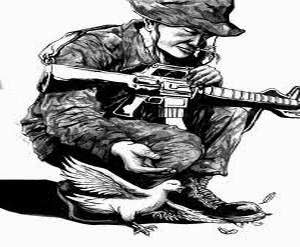
and Government Media Offices
links: http://president.gov.ph/
Article Links: http://pcoo.gov.ph/news-releases/
Article Links: http://pcoo.gov.ph/news-releases/
President Rodrigo Roa Duterte received the proposed
federal constitution drafted by the Consultative Committee during a
simple ceremony in Malacañan Palace on Monday, July 9.
The draft constitution, which will usher in the country’s shift from unitary to federal system of government, was handed over by the Consultative Committee led by its chairman retired Chief Justice Reynato Puno.
“In drafting this proposed Constitution, we were guided by one directive you gave — do what is best for our people,” Puno said in his speech referring to the President.
“We thank you for this full trust and confidence and we assure you that the Consultative Committee did its work with complete independence and unbiased by any partisan politics or by any elite interest,” he added.
Puno said the draft constitution seeks to establish “a distinct federalism” in the country, which he termed as “a bayanihan federalism.”
“The design of this bayanihan federalism installs a federal government strong enough to hold together the various federated regions and establishes regions that are socially, economically, and politically viable and sustainable,” he said.
The proposed constitution seeks to create 18 federated regions, including federated regions of the Bangsamoro and Cordillera.
“We divided the powers of government guided by the Filipino spirit of bayanihan where both the federal government and the federated regions govern the people less in competition but more in cooperation and aligned with the maxim the welfare of the people is the supreme law: Salus populi est suprema lex,” Puno added.
The former chief justice then cited several features of the draft federal constitution.
He said that it democratized the electoral process by prohibiting political dynasties that have long monopolized the elections.
At the same time, it transformed political parties as mechanisms of citizen representation and democratic governance.
Under the draft constitution, political turncoatism is also prohibited.
“Hence, political butterflies cannot flutter anymore from one political party to another political party,” said Puno.
The draft federal charter did not only level the political playing field but also levelled the economic playing field, according to Puno.
He said it prohibited monopolies and oligopolies that substantially lessen competition in the market and abuse their dominant positions.
“For this purpose, the draft constitution established an independent competition commission to stop these monopolies by the moneyed,” he noted.
Furthermore, Puno said that the draft charter “strengthened the institutions of government to fight graft and corruption.”
He said it transformed the Ombudsman to a commission type office in order to investigate and prosecute more effectively violations of anti-graft laws.
It also gave the Commission on Audit the power to conduct pre-audit and performance audit to ensure that the people’s money is spent strictly in accordance with the law.
Puno also described the draft charter as “a pro-poor Constitution.”
“For the first time in our history, the socioeconomic rights of the poor to adequate food, comprehensive health care, complete education, adequate and decent housing and livelihood and employment opportunities are included in the Bill of Rights as rights demandable against the government,” he said.
“The poor are also guaranteed political representation in the legislatures of the federal government and the federated regions,” he added.
“Finally, the draft constitution established a permanent and indissoluble nation because it recognized the ethnicity, culture, religion, customs, traditions, language and distinct identities of our brothers and sisters in the Cordillera and Bangsamoro,” he further said.
Puno said the committee will await for further instructions from the President as he reviews the draft.
Also present to witness the turnover were Con-Com members former Senate President Aquilino “Nene” Pimentel Jr., Atty. Susan Ubalde-Ordinario, Atty. Ali Pangalian Balindong and Atty. Laurence Wacnang.
Phone call with Malaysian Prime Minister Mahathir Mohamad
Following the turnover, President Duterte made a phone call to newly-elected Malaysian Prime Minister Mahathir Mohamad.
The President congratulated Mahathir and vowed to closely work with him in addressing pressing regional issues.
“I’m calling you Your Excellency to congratulate you in your resounding victory,” Duterte told the Prime Minister.
He assured the Malaysian leader that the Philippines will remain a staunch ally of Malaysia in area of security particularly in tackling Islamic extremism and piracy in the high seas.
At the same time, Duterte invited Malaysia to revive the joint consultative meeting to build a platform for advancing relations and discuss pending agreements and other possible collaboration.
The President then thanked Mahathir for taking care of Filipinos in Malaysia.
Mahathir made a stunning election upset last May when he defeated his one-time protégé, the incumbent Najib Razak. Mahathir, Malaysia’s longest-serving prime minister, stepped out of retirement to challenge Najib.
At 92, Mahathir became the world’s oldest head of government. ### (PND)
The draft constitution, which will usher in the country’s shift from unitary to federal system of government, was handed over by the Consultative Committee led by its chairman retired Chief Justice Reynato Puno.
“In drafting this proposed Constitution, we were guided by one directive you gave — do what is best for our people,” Puno said in his speech referring to the President.
“We thank you for this full trust and confidence and we assure you that the Consultative Committee did its work with complete independence and unbiased by any partisan politics or by any elite interest,” he added.
Puno said the draft constitution seeks to establish “a distinct federalism” in the country, which he termed as “a bayanihan federalism.”
“The design of this bayanihan federalism installs a federal government strong enough to hold together the various federated regions and establishes regions that are socially, economically, and politically viable and sustainable,” he said.
The proposed constitution seeks to create 18 federated regions, including federated regions of the Bangsamoro and Cordillera.
“We divided the powers of government guided by the Filipino spirit of bayanihan where both the federal government and the federated regions govern the people less in competition but more in cooperation and aligned with the maxim the welfare of the people is the supreme law: Salus populi est suprema lex,” Puno added.
The former chief justice then cited several features of the draft federal constitution.
He said that it democratized the electoral process by prohibiting political dynasties that have long monopolized the elections.
At the same time, it transformed political parties as mechanisms of citizen representation and democratic governance.
Under the draft constitution, political turncoatism is also prohibited.
“Hence, political butterflies cannot flutter anymore from one political party to another political party,” said Puno.
The draft federal charter did not only level the political playing field but also levelled the economic playing field, according to Puno.
He said it prohibited monopolies and oligopolies that substantially lessen competition in the market and abuse their dominant positions.
“For this purpose, the draft constitution established an independent competition commission to stop these monopolies by the moneyed,” he noted.
Furthermore, Puno said that the draft charter “strengthened the institutions of government to fight graft and corruption.”
He said it transformed the Ombudsman to a commission type office in order to investigate and prosecute more effectively violations of anti-graft laws.
It also gave the Commission on Audit the power to conduct pre-audit and performance audit to ensure that the people’s money is spent strictly in accordance with the law.
Puno also described the draft charter as “a pro-poor Constitution.”
“For the first time in our history, the socioeconomic rights of the poor to adequate food, comprehensive health care, complete education, adequate and decent housing and livelihood and employment opportunities are included in the Bill of Rights as rights demandable against the government,” he said.
“The poor are also guaranteed political representation in the legislatures of the federal government and the federated regions,” he added.
“Finally, the draft constitution established a permanent and indissoluble nation because it recognized the ethnicity, culture, religion, customs, traditions, language and distinct identities of our brothers and sisters in the Cordillera and Bangsamoro,” he further said.
Puno said the committee will await for further instructions from the President as he reviews the draft.
Also present to witness the turnover were Con-Com members former Senate President Aquilino “Nene” Pimentel Jr., Atty. Susan Ubalde-Ordinario, Atty. Ali Pangalian Balindong and Atty. Laurence Wacnang.
Phone call with Malaysian Prime Minister Mahathir Mohamad
Following the turnover, President Duterte made a phone call to newly-elected Malaysian Prime Minister Mahathir Mohamad.
The President congratulated Mahathir and vowed to closely work with him in addressing pressing regional issues.
“I’m calling you Your Excellency to congratulate you in your resounding victory,” Duterte told the Prime Minister.
He assured the Malaysian leader that the Philippines will remain a staunch ally of Malaysia in area of security particularly in tackling Islamic extremism and piracy in the high seas.
At the same time, Duterte invited Malaysia to revive the joint consultative meeting to build a platform for advancing relations and discuss pending agreements and other possible collaboration.
The President then thanked Mahathir for taking care of Filipinos in Malaysia.
Mahathir made a stunning election upset last May when he defeated his one-time protégé, the incumbent Najib Razak. Mahathir, Malaysia’s longest-serving prime minister, stepped out of retirement to challenge Najib.
At 92, Mahathir became the world’s oldest head of government. ### (PND)
Office of the President Website
http://president.gov.ph/
http://op-proper.gov.ph/
http://pcoo.gov.ph
http://www.pna.gov.ph/
http://ptvnews.ph/
http://president.gov.ph/
http://op-proper.gov.ph/
http://pcoo.gov.ph
http://www.pna.gov.ph/
http://ptvnews.ph/
Article links:
OTHER HUMAN RIGHTS PROMOTIONS WEBSITES
Human Rights Advocacy Promotions | Human Rights
Home - Human rights Promotions Website
http://www.humanrightspromotions.co.nr
PROTECTION AND PROMOTION OF HUMAN RIGHTS
------------------------------------------------------------------------------------------------
-----------------------------------------------------------------------
-----------------------------------
Human Rights Advocacy Promotions | Human Rights
Home - Human rights Promotions Website
http://www.humanrightspromotions.co.nr
PROTECTION AND PROMOTION OF HUMAN RIGHTS
------------------------------------------------------------------------------------------------
-----------------------------------------------------------------------
-----------------------------------


























0 comments:
Post a Comment